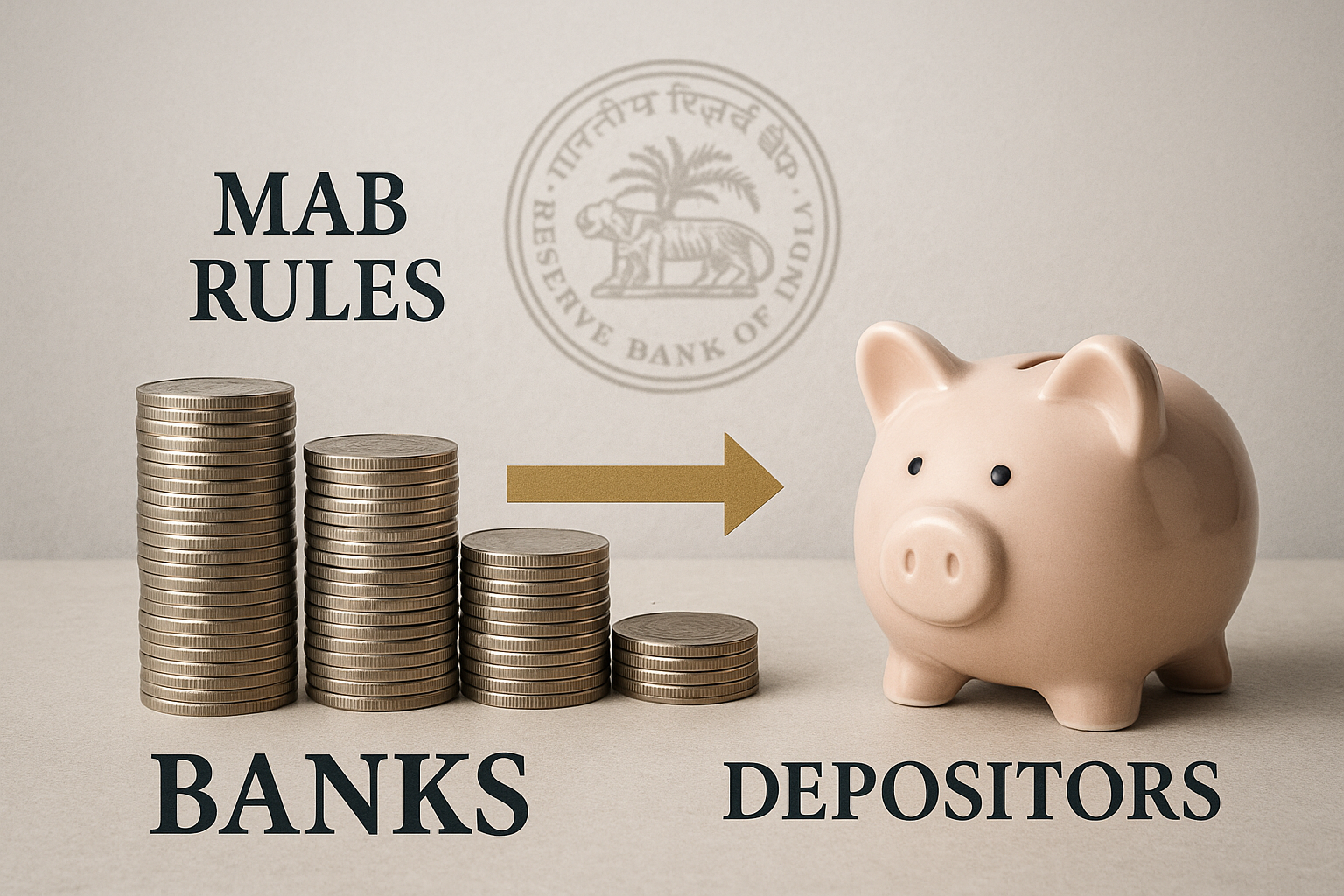A recent policy shake-up brought the minimum average balance (MAB) practice to the spotlight after ICICI Bank raised its MAB for new savings accounts—only to later rollback in the face of public backlash. An insightful editorial in The Economic Times critiques the proliferation of MAB as a systemic issue that disproportionately benefits banks while burdening depositors.
Background & Controversy
ICICI Bank’s MAB Hike Backlash
ICICI Bank’s aggressive hike—from ₹10,000 to ₹50,000 for metro/urban accounts—triggered strong public and political pushback. The bank reversed course, reducing MAB to ₹15,000 (metro/urban), ₹7,500 (semi-urban), and ₹2,500 (rural).RBI’s Hands-Off Approach
RBI Governor Sanjay Malhotra reiterated that banks are free to decide their own MAB levels, confirming that this is outside the central bank’s regulatory scope. This autonomy allows wide variabilities across banks.
Why MAB Practices Draw Criticism
| Issue | Implications |
|---|---|
| Origins & Financial Motivation | MAB emerged in the deregulation era of the 1990s to compensate banks for shrinking interest margins—not for customer benefit. |
| Impact on Financial Inclusion | Elevating MAB requirements excludes low-income or digitally unbanked customers, undermining inclusive banking goals. |
| Revenue vs Technology Trade-off | Instead of investing in automation or scale, banks generate fee income via MAB penalties. |
| Customer Transparency & Clarity | Disclosures on MAB-related penalties vary widely; fee structures often lack clarity. |
| Depositor Disadvantage | MABs act as stealth charges—eroding savings, limiting growth, and breaching trust, especially among the unorganized. |
Broader Implications
Financial Inclusion at Risk
MAB requirements raise costs of maintaining bank accounts, contradicting efforts under PMJDY and ‘no-frills’ account schemes.Policy and Regulation Gaps
RBI’s reluctance to intervene or standardize MAB policies leaves depositors vulnerable to arbitrary fees and unexplained thresholds.Need for Fair Practices
The editorial emphasizes the importance of fairness, suggesting RBI revisit guidelines, enforce transparency, or cap MABs relative to account usage tiers.












